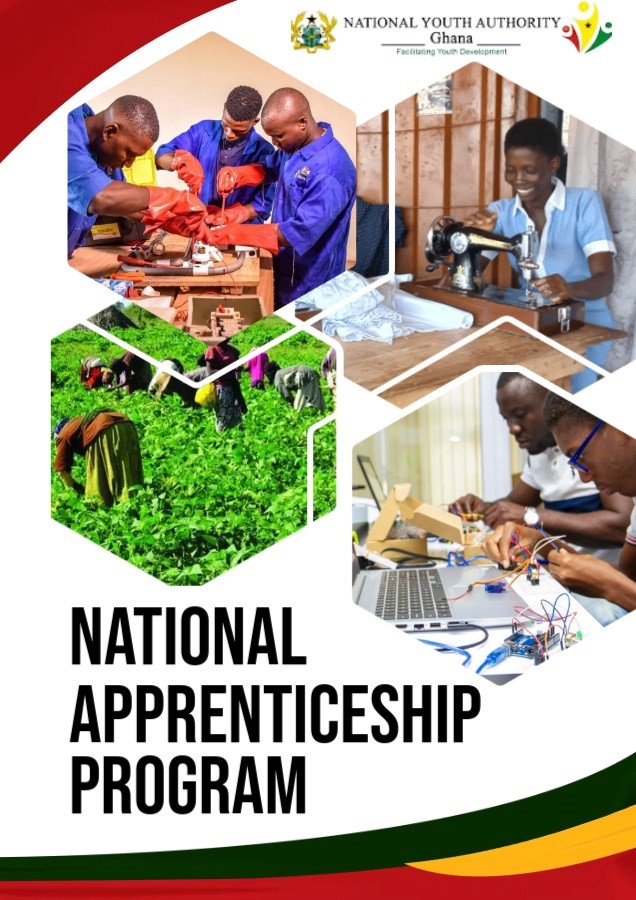The National Apprenticeship Programme is a major Government initiative to address youth unemployment, close the skills gap, and promote economic growth across Ghana. NAP offers free, high-quality apprenticeship training to equip young people with industry-relevant technical, vocational, and entrepreneurial skills. The programme combines structured classroom instruction (30%) with hands-on workplace learning (70%) under qualified trainers and master craft persons. Graduates of NAP will receive nationally recognised certification and pathways to employment or self-employment in priority sectors such as agriculture, manufacturing, ICT, fashion, construction, renewable energy, and traditional crafts. Special focus is placed on promoting inclusivity, ensuring that women, persons with disabilities, and youth from underserved communities are fully represented.
Click to download application forms
Eligibility Criteria
- Must be a Ghanaian citizen.
- Must be between 15 and 40 years of age.
- Must be genuinely interested in acquiring a technical, vocational, or entrepreneurial skill.
- Open to individuals from all educational backgrounds – no minimum academic qualification required.
- Must be unemployed, underemployed, or seeking skills certification (including school dropouts, SHS and tertiary graduates, and informal sector workers).
- Women applicants are strongly encouraged (minimum 40% of selected beneficiaries will be women).
- Persons with disabilities are encouraged to apply (minimum 5% inclusion).
- Must be committed to completing the apprenticeship programme per the agreed training duration.
- Must be a resident in the community, district, or region where the training will occur.
- Willingness to abide by the programme's rules, conduct standards, and training requirements.
The National Apprenticeship Programme will target high-impact sectors, including:

